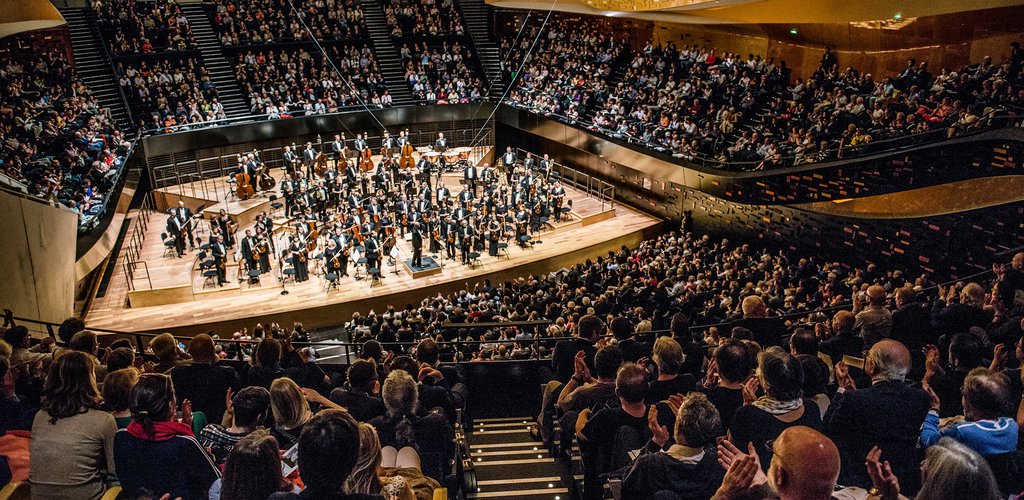I went to the concert because of Emanuel Ax. He first got me enthused with his through and through traditional, but absolutely flawless, performance of Ludwig’s Piano Concerto No. 2, two seasons ago. I wanted to see what he would do with one of the most beautiful of Mozart’s concert pieces. And you know what? He did exactly what I was expecting him to do. He rendered an exacting version of the music, whose attraction lay more in its absolute precision than in any exceptionally nimble touches. Sure, the fact that the evening was close to Maurizio Pollini’s solo concert did not make it easier. It was a beautiful moment, and one I had been eagerly awaiting – but there were no major surprises.
And then let’s take a look first at the Budapest Festival Orchestra. The ensemble, founded in 1983 by Iván Fischer (and Zoltán Kocsis), the composer who led them last night, is a brilliant example of how an orchestra need not necessarily have a glorious past for it to possess true and beautiful unity in sound. Bach, performed “authentically” – standing and using period instruments – was filled with pleasant and soft phrases. This upbeat energy stayed with them for the Mozart piece and then, for Tchaikovsky, it literally exploded.
What a miracle Symphony No. 4 is! The first movement, loudly expressing “futile hope,” starts off with stormy brass explosions which tear us away from everything and shake us for the duration of the entire movement – and, in fact, in a way, through the entire piece. In no way can the airy but artistic unison of the flute, the clarinet and the oboe soothe this storm. If this piece is indeed about the life of Tchaikovsky, then it is the raging storm of the fanfare which bellows the final judgment. And all of this is inevitably… Terrible! Fantastic!
The heart-wrenching moments concluding the first movement are followed by the long, melancholic song of the second movement. Longer and shorter melodies full of sadness alternate, and you can’t tell if these bring healing or represent an almost satisfied stroll on the way to surrender. The third movement, when blithe pizzicatos appear to be mocking this (and everything), may best be described by a feeling of, “Let's be flippant and carefree.” It is as though one could dissolve in the celebration that the Finale beckons to you to join. And should you, for a moment, try to do so, a gust of brassy wind will pull you back to the weightiness of the fate of the living and all mortals. A masterpiece!
A tremendous musical slap. Thank you, Budapest Festival Orchestra! Thank you, Tchaikovsky!
DK, 18 October 2017
